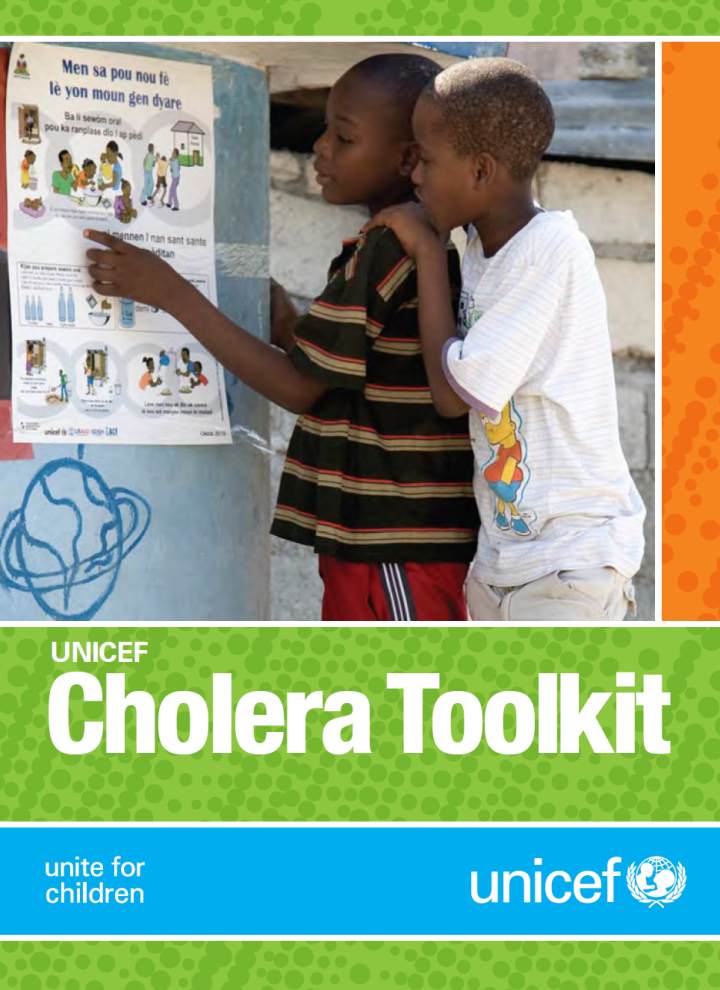Cholera Toolkit UNICEF (2013)
Cholera is on the rise with an estimated 1.4 billion people at risk in endemic countries and an estimated 3 million to 5 million cases and 100,000-120,000 deaths per year worldwide. In many endemic countries, children under 5 account for more than half of the global incidence and deaths. Cholera has remained endemic in some Asian countries for centuries, has become endemic in an increasing number of African countries with epidemics throughout the years, and has recently returned to the Americas with on-going transmission in Haiti and the Dominican Republic. New, more virulent and drug-resistant strains of Vibrio cholerae continue to emerge, and the frequency of large protracted outbreaks with high case fatality ratios has increased, reflecting the lack of early detection, prevention and access to timely health care. These trends are concerning, signal a growing public health emergency and have gained the interest and investment of UNICEF at all levels.
Bibliographic information
UNICEF (2013). Cholera Toolkit UNICEF
Filter / Tags
English

